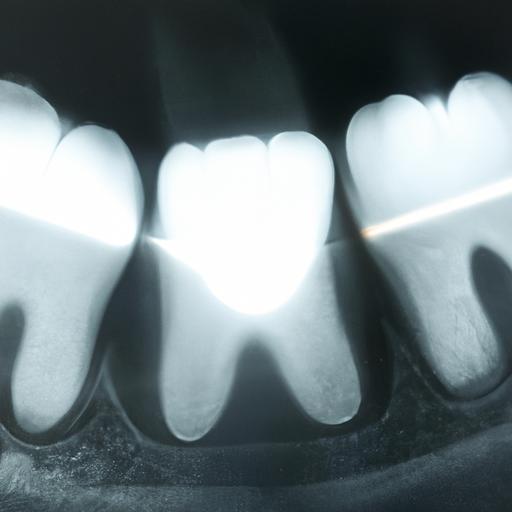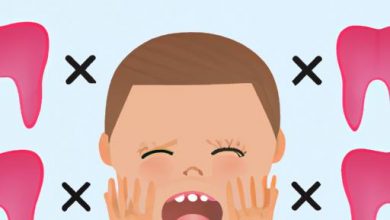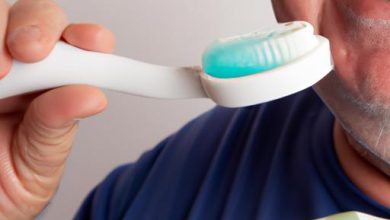Vitamin D Deficiency Dental Problems: Causes and Symptoms
Vitamin D is an essential nutrient that plays a crucial role in maintaining our overall health. It helps our body absorb calcium, which is necessary for developing and maintaining healthy bones, teeth, and muscles. Moreover, Vitamin D also helps our immune system fight off infections and diseases.
However, many people are not getting enough Vitamin D, which can lead to a range of health problems, including dental problems. The most common cause of Vitamin D deficiency is a lack of sun exposure, but other factors such as poor diet, obesity, and medical conditions can also contribute to it.
Causes of Vitamin D Deficiency

Lack of Sun Exposure
Sunlight is the primary source of Vitamin D, and our skin can produce it when exposed to sunlight. However, many people, especially those who live in northern latitudes or urban areas, may not get enough sun exposure to produce sufficient Vitamin D. Moreover, people who work indoors or wear clothing that covers their skin may also have a higher risk of Vitamin D deficiency due to the lack of sun exposure.
Poor Diet
Vitamin D is found naturally in only a few foods, such as fatty fish, egg yolks, and liver. However, most people get their daily intake of Vitamin D from fortified foods such as milk, orange juice, and cereals. A poor diet that lacks these foods can lead to Vitamin D deficiency.
Obesity
Obesity has been linked to Vitamin D deficiency as excess body fat can absorb and trap Vitamin D, making it less available to the body. Moreover, obese people may not get enough Vitamin D from their diet, as the nutrient can be stored in fat and not released into the bloodstream.
Medical Conditions
Certain medical conditions such as celiac disease, Crohn’s disease, and cystic fibrosis can affect the body’s ability to absorb Vitamin D from food. Moreover, people with liver or kidney disease may not be able to convert Vitamin D into its active form, leading to deficiency.
Symptoms of Vitamin D Deficiency Dental Problems
Vitamin D deficiency can lead to a range of dental problems, including tooth decay, gum disease, delayed tooth eruption, and oral infections.
Tooth Decay
Vitamin D deficiency can weaken tooth enamel, making teeth more susceptible to decay. Moreover, the nutrient plays a crucial role in mineralizing teeth, which is essential for maintaining healthy enamel.
Gum Disease
Vitamin D deficiency can also increase the risk of gum disease, which is an infection of the gums that can lead to tooth loss if left untreated. Studies have shown that people with low levels of Vitamin D are more likely to have gum disease than those with sufficient levels.
Stay tuned for sections 3 and 4.
Symptoms of Vitamin D Deficiency Dental Problems
Oral Infections
Vitamin D deficiency can also weaken the immune system, making it harder for the body to fight off infections in the mouth. This can lead to oral infections such as thrush, which is a fungal infection that can cause white patches on the tongue, inner cheeks, and throat.
Delayed Tooth Eruption
Vitamin D is essential for the development of teeth, and deficiency can delay tooth eruption, especially in children. A study published in the Journal of Clinical Pediatric Dentistry found that children with low levels of Vitamin D had a higher risk of delayed tooth eruption than those with sufficient levels.
Diagnosis of Vitamin D Deficiency Dental Problems
If you are experiencing dental problems and suspect Vitamin D deficiency, your dentist may recommend a dental examination, blood test, or X-ray to diagnose the problem.
Dental Examination
During a dental examination, your dentist will examine your teeth and gums for signs of decay, gum disease, and other dental problems associated with Vitamin D deficiency.
Blood Test
A blood test is the most accurate way to diagnose Vitamin D deficiency. The test measures the level of Vitamin D in your blood, and your doctor can determine if you have deficiency based on the results.
X-ray
An X-ray can also help diagnose dental problems associated with Vitamin D deficiency. The X-ray can show tooth decay, delayed tooth eruption, and other dental problems.
In conclusion, Vitamin D deficiency can lead to a range of dental problems, and it’s essential to maintain sufficient levels of the nutrient to maintain healthy teeth and gums. If you are experiencing dental problems, talk to your dentist and doctor about the possibility of Vitamin D deficiency and the best course of action to treat it. At Zahnweiss Info, we are dedicated to providing the latest updates on dental health news, treatments, and therapies to help you live your healthiest life.
Treatment and Prevention of Vitamin D Deficiency Dental Problems
Vitamin D deficiency can be easily treated and prevented through several measures. Here are some ways to maintain healthy Vitamin D levels to prevent dental problems:
Vitamin D Supplements
Vitamin D supplements are an effective way to increase the body’s levels of the nutrient. Supplements come in various forms such as pills, drops, and gummies, and can be taken daily to maintain healthy levels.
Sun Exposure
Spending time outdoors and exposing the skin to sunlight can help the body produce Vitamin D naturally. However, it is essential to balance sun exposure with skin protection to prevent sunburn and skin damage.
Healthy Diet
Consuming foods rich in Vitamin D can also help prevent deficiency. Incorporating fatty fish, egg yolks, and fortified foods such as milk, orange juice, and cereals can help maintain healthy levels.
Good Oral Hygiene Practices
Maintaining good oral hygiene practices can also help prevent dental problems caused by Vitamin D deficiency. Brushing twice a day, flossing daily, and visiting the dentist regularly can help prevent tooth decay and gum disease.
Conclusion
In conclusion, maintaining healthy levels of Vitamin D is crucial for preventing dental problems such as tooth decay, gum disease, and delayed tooth eruption. Vitamin D deficiency can be caused by several factors such as lack of sun exposure, poor diet, obesity, and medical conditions. It can be easily treated and prevented through Vitamin D supplements, sun exposure, healthy diet, and good oral hygiene practices.
It is important to seek dental and medical attention when experiencing dental problems to ensure early detection and treatment of Vitamin D deficiency. At Zahnweiss Info, we are dedicated to helping you maintain your dental health by providing the latest updates on dental health news, treatments and therapies, inspiring patient stories, and expert advice.




